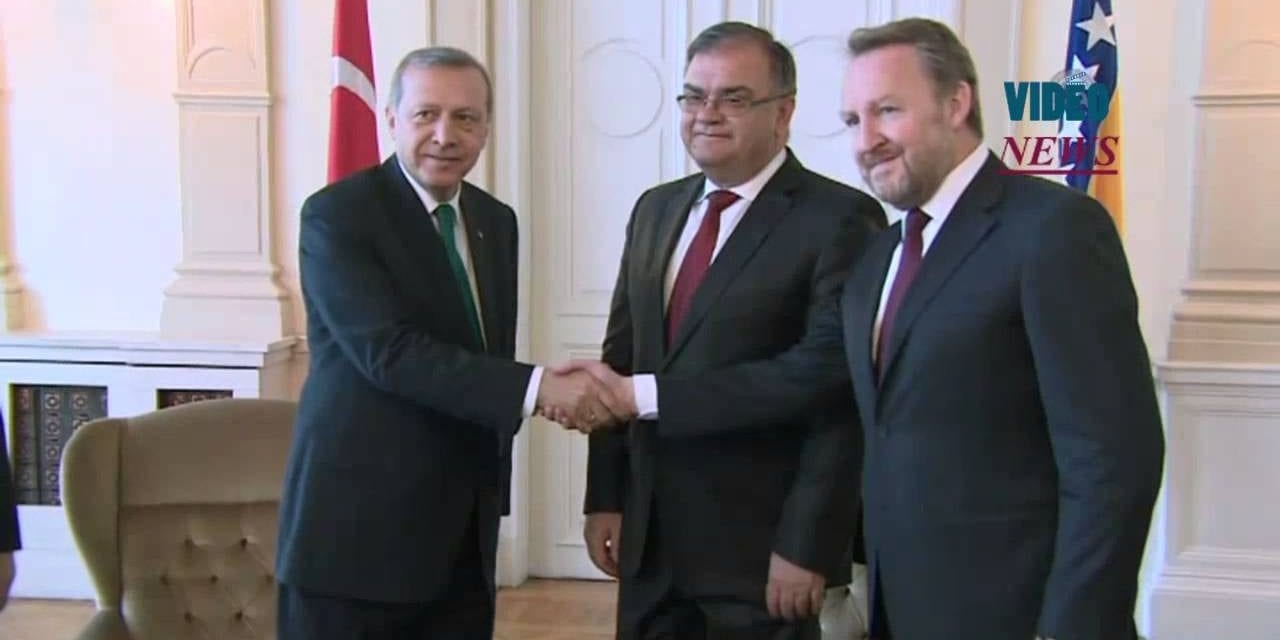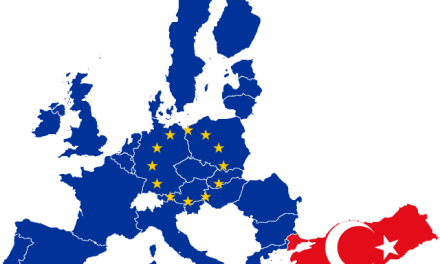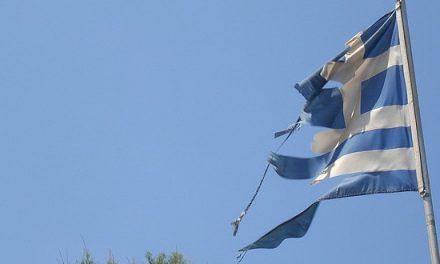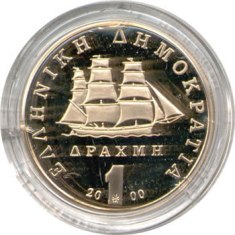Turkish President Recep Tayyip Erdogan’s opulent election rally in Sarajevo on Sunday was a carefully stage-managed performance, designed to benefit both Erdogan and his host, the Bosniak member of Bosnia’s tripartite state presidency, Bakir Izetbegovic.
For Erdogan, still stinging from embarrassing rebuffs from Germany and Austria, the visit was an opportunity to demonstrate the strength of his assertive foreign policy, especially in the Balkans and the Caucasus, where the EU and the US still maintain a degree of strategic interest, and which Ankara can clearly muddy.
And styling himself a latter-day “Sultan”, the old Ottoman “ties” between these regions are anything but incidental to this project.
For Izetbegovic, meanwhile, the visit was an opportunity to shore up support for his Party of Democratic Action, SDA, which has been haemorrhaging members and is in the midst of its worst crisis since its founding in 1990.
That he came off as no more than a lowly vassal to Erdogan’s megalomaniacal pursuit of power and prestige in Turkey’s “near abroad” was of no consequence to Izetbegovic, or, clearly, to the throngs of SDA supporters who joined thousands of Turks from across Southeast Europe in the Zetra arena to see the duo work their magic.
But behind the euphoria, serious damage was done to Bosnia’s international standing and to the country’s already weak democratic institutions.
Whether anyone in the so-called “pro-Bosnian” political establishment has the courage to say so or not, Erdogan is an autocrat.
Under his tenure, Turkey has become a non-democratic state, an assessment shared by every major monitoring organization in the world, to say nothing of the scholarly consensus.
What can this regime offer Bosnia and Herzegovina? His government invests more in Serbia than Bosnia, and its ties with both the EU and NATO are in a shambles.
Turkey is now known to the international community primarily as a state in which thousands of journalists, academics, students, lawyers, doctors, and all manner of innocent civilians are currently detained without trial for largely imagined roles in a 2016 coup attempt.
It is also a government that has begun to “disappear” people even in the Balkans – while to Sarajevo it brought its particular brand of media censorship.
Such a regime can only be a liability for Bosnia, which is already adrift in an increasingly hostile international climate. Indeed, it is clear that much of the support, or tolerance, for Erdogan in Sarajevo comes from his government’s purported backing for Bosnia’s sovereignty and territorial integrity.
But let us investigate this support a bit more seriously.
The alpha and omega of Bosnian security is accession to NATO. This is far and away the country’s most urgent strategic priority, even more so than constitutional reform and EU membership.
Where is Erdogan’s actual advocacy for Bosnia’s membership in NATO, beyond occasional lip service? Ankara’s own relationship with its NATO allies has grown so strained that it is now, at best, an “unhappy marriage”.
While Turkey is unlikely to leave NATO as a result of these strained ties, Erdogan’s government has certainly not endeared itself to Western capitals. And that, by extension, imperils Bosnia.
The counter to this line of reasoning is that these same Western capitals have shown themselves to be deaf to the growing concerns in Sarajevo about Bosnian Serb and Croat nationalist brinkmanship.
Only two days before Erdogan’s arrival, police in the Herzegovina-Neretva Canton, at the best of the Croatian Democratic Union, HDZ, orchestrated a dangerous showdown with state authorities over a group of migrants who were being moved from Sarajevo to the outskirts of Mostar.
These concerns are valid. The EU, and the US (to a lesser extent), have both played handmaiden to the HDZ’s obstructionism of reform efforts, much as they have largely shrugged off the clear threat to the integrity of the 1995 Dayton Peace Accords posed by the secessionist tendencies of Milorad Dodik, the president of the Republika Srpska entity.
But the response of parties and movements committed to Bosnia’s peace and security should not be to rush headlong into the arms of a nominally sympathetic authoritarian.
For one thing, it complicates efforts to rebuff Russia’s growing intrusions into Bosnia’s domestic politics, in particular, the Kremlin’s backing for Dodik and his illiberal government.
For another, it gives fodder to the surging far-right in the EU which wants nothing more than to reject Bosnia’s already dubious aspirations for EU membership by claiming, falsely, that the country is a hotbed for Islamists and Muslim radicals.
The optics of Erdogan’s visit to Sarajevo, in short, were terrible.
That claim may elicit indignation in some quarters, but the reality is that Bosnia is a polity with few genuine allies.
The EU is feckless and the US is in the midst of a constitutional crisis in all but name. However, association with these states, for all their flaws and infuriating indifference, still offers Bosnia its best chance of survival.
Winston Churchill was right: democracy is the worst form of government – except for all the others. Bosnia and Herzegovina’s vital national interest is to become a true liberal-democratic state.
That means that its place is to be in league with the two most powerful democratic blocs in the world, the EU and the US, and with the security pact that binds them, NATO.
If Turkey ever returns to its democratic sensibilities, its relations with Bosnia can, and should, deepen.
But only on that condition: on a shared respect for democracy, human rights, and the rule of law. Anything else is a liability, and a threat to Bosnia and Herzegovina’s future.
Dr. Jasmin Mujanovic is a political scientist specialising in the politics of Southeastern Europe and of post-authoritarian and post-conflict democratisation. His first book, ‘Hunger and Fury: The Crisis of Democracy in the Balkans’ is now available from Hurst Publishers (in the UK and EU) and Oxford University Press (in North America).



















